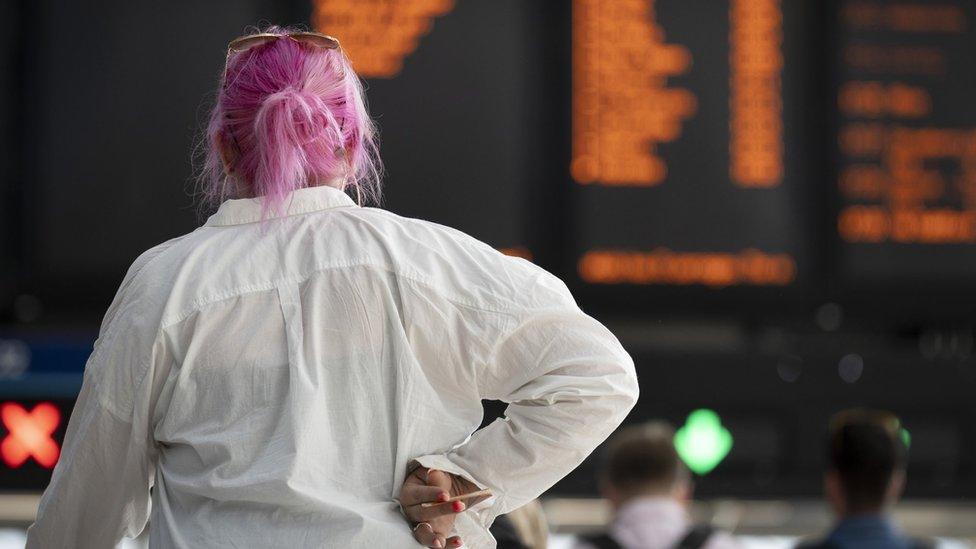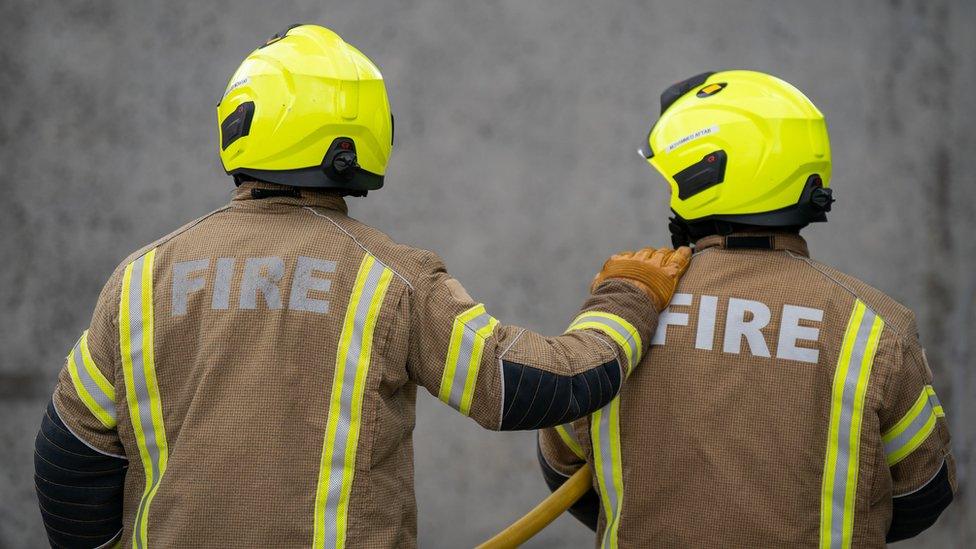Train strikes could continue for another six months
- Published
- comments

Passengers could face another six months of strikes, after a vote by thousands of rail workers.
Members of the RMT union working at Network Rail and 14 train companies have voted in favour of further action.
More strikes are likely unless a deal on pay, job security and working conditions is reached to end the dispute.
Rail operators said passengers would be "dismayed by this outcome".
Members of the RMT have already taken part in eight days of strike action since June which brought much of the rail network to a standstill.
The union said just over 91% of votes in its latest ballot were in favour of further strikes, with the average turnout 70.2%. It said more than 40,000 members had been balloted.
RMT general secretary Mick Lynch said the union was "determined to continue with this campaign until the employers understand that they need to respond to our members' aspirations on job security, pay and working conditions".
A spokesperson for the Department for Transport said the Christmas plans of millions could potentially be thrown into turmoil.
The Rail Delivery Group, which represents train firms, called on the RMT "to continue to work with us to agree the vital reforms necessary to both afford a fair pay deal, and secure a sustainable future for the railway which is currently taking more than its fair share from the taxpayer".
"Further counterproductive strike action would only heap more misery on our customers and struggling businesses in the run up to Christmas, and continue to undermine the viability of an industry we all want to see thrive," said Rail Delivery Group chair Steve Montgomery.
Strikes in early November were called off at the eleventh hour to enable a period of "intensive" negotiations which are currently underway.
At the time the RMT said it had secured unconditional talks with Network Rail, and the promise train companies would make an offer - which they have not done so far.
However there's no guarantee that such an offer will be made during these intensive talks.
'Desperate need of modernisation'
Tim Shoveller, Network Rail's chief negotiator, said "What's clear for all of us is that striking is not changing the railway's precarious financial position, but actually only making it worse. The railway has not recovered from the pandemic and is currently losing millions a day, which makes reaching a deal both tough and essential."
He added: "Our railway is in desperate need of modernisation and we once again urge union bosses to work with employers, not against them, and come to an agreement which is fair for passengers, taxpayers and workers alike. The very future of the industry depends on it."
Unions say salaries should increase to reflect the rising cost of living.
But the rail industry is under pressure to save money, after the pandemic left a hole in its finances. Bosses say reforms need to be agreed, to afford pay increases and modernise the railway.
A major part of the RMT's dispute with Network Rail is a plan to change how the organisation's maintenance teams work, involving 1,900 job cuts.
Network Rail recently paused a formal consultation into these changes. It has also offered to extend the period of no compulsory job losses until early 2025.
Separately, the Aslef union, which represents drivers, has already announced it will hold another strike on 26 November in a dispute over pay. It affects 12 train companies.
The new Transport Secretary Mark Harper has invited the leaders of the RMT, Aslef and TSSA unions to meetings in the near future.
Related topics
- Published16 November 2022

- Published9 May 2024
